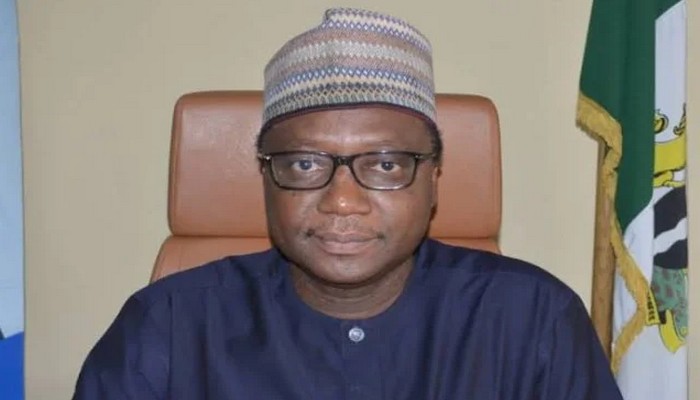RMAFC justifies move to increase salaries of president, other elected officials by 114%
The chairman of Revenue Mobilisation, Allocation and Fiscal Commission (RMAFC), Mohammed Shehu, has given reason for the Commission’s recommendation for an upward review of salaries of political office holders in the country, amid strong criticism by Nigerians.
The commission had recommended a 114 per cent increase in the salaries of elected public officials, including the President, his vice, federal and state legislators, governors, as well as judicial officers.
This, however, requires approval from the president and other cabinet members and thereafter it would be sent to the National Assembly through an executive bill for passage.
The move have attracted strong condemnations from the public, who expected the new administration to cut costs in order to tackle the country’s low revenue and other economic challenges. One of the persons who vehemently opposed the move in the Labour Party presidential candidate, Mr Peter Obi.
But the commission argued that the increment was long overdue, adding that the last time the affected public officials’ salaries were increased was 16 years ago.
Speaking on ARISE News Channel on Wednesday night, a Federal Commissioner of the RMAFC, Mr. Hassan Usman, noted that elected officials as well as the populace were all confronted with the same economic situation.
According to Arise News, RMAFC is saddled with the responsibility of determining the appropriate remuneration for political office holders, including the President, Vice President, Governors, Deputy Governors, Ministers, Commissioners, Special Advisers, Legislators and the holders of the offices as mentioned in Sections 84 and 124 of this Constitution.
However, as a result of the recommendation, the commission has called on the 36 states’ Houses of Assembly to hasten efforts on the amendment of relevant laws to give room for upward review of remuneration packages for political, judicial and public officers.
According to the commissioner, “The consumer price index is for everybody; private and the public”, adding that the scenario formed part of their consideration for the increment.
While pointing out that the commission could not fold their hands and watch, “until when the sacrificial lamb is dead or killed”, Usman argued that the salary of Nigeria’s President is one of the lowest when compared and with all the other presidents, adding that the annual salary of the president falls around N7 million.
He, however, clarified that the increment was on only the basic salary of the public officials.
“We didn’t increase the allowances. All we did was increase the basic salary and then of course the allowances are there the way they are, they are only commensurate percentages of the basic salary,” he said.
He further explained that the reviews are in four volumes, involving the federal government and the Federal Capital Territory on one hand and the governors, state legislators as well as local governments on the other.
“Volume one entails the review of the federal government and the FCT , volume two for the state government and the local government, volume three is for the judiciary from top to bottom and volume four; is for the legislature, from the federal legislature to the state and even local government council.
“The volumes are there, we have submitted them, they are just recommendations. We have submitted to the office of Mr President and he is going to take them to the National Assembly for the federal government and FCT and those for the states would be legislated upon by the state houses of assembly”, he added.
Earlier, the RMAFC had revealed that it recommended a 114 per cent increase in the salaries of elected politicians, including the president, vice president, governors, lawmakers as well as judicial and public office holders.
RMAFC Chairman, Muhammadu Shehu, represented by a federal commissioner, Rakiya Tanko-Ayuba, disclosed this during the presentation of reports of the reviewed remuneration package to Kebbi State Governor, Dr. Nasir Idris, on Tuesday in Birnin Kebbi.
The RMAFC boss said the implementation of the reviewed remuneration packages became effective from January 1, 2023, adding that the move was in accordance with the provision of paragraph 32(d) of part 1 of the Third Schedule of the 1999 constitution of the federal government (as amended).
He said the last remuneration review was conducted in 2007, noting that it culminated in the, “certain political, public and judicial office holders (salaries and allowances, etc) (Amendment) Act, 2008.”
Shehu said, “It empowers the revenue mobilisation, allocation and fiscal commission to determine the remuneration appropriate for political office holders, including the president, vice-president, governors, deputy governors, ministers, commissioners, special advisers, legislators and the holders of the offices mentioned in sections 84 and 124 of the constitution of the federal government.
“Sixteen years after the last review, it is imperative that the remuneration packages for the categories of the office holders mentioned in relevant sections of the 1999 constitution (as amended) should be reviewed.
“Pursuant to the above, your excellency may please recall that on Wednesday, 1st February, 2023, the commission held a one-day zonal public hearing on the review of the remuneration package simultaneously in all the six geo-political zones of the country. The aim of the exercise was to harvest inputs/ideas from a broad spectrum of stakeholders.”
He said the commission had objectively and subjectively reviewed the salary packages in the reports, adding that it adheres to the rules of equity and fairness, risk and responsibilities, national order of precedence among others.
“The subjective criteria reflected the various expressions by stakeholders through memoranda received, opinions expressed during the zonal public hearings and responses to questionnaires administered.
“The objectives of the criteria were obtained from analysis of macro-economic variables particularly the Consumer Price Index (CPI),” he noted.
The chairman added that the commission was also guided by some principles, including equity and fairness; risk and responsibilities; national order of precedence; motivation and tenure of office.
Shehu said that having considered the impact of the review on the economy, the remuneration of the political, public and judicial office holders in the country was adjusted, “upward by 114 per cent.”
The chairman explained that with respect to the judicial office holders, the commission considered the introduction of three new allowances.
He listed the allowances to include, “Professional Development Assistant: This is to allow for the provision of two law clerks to all judicial officers in the country.
“Long Service Allowance: This is to guarantee seniority/hierarchy between officers who have been on the bench for a minimum of five years and those that are appointed newly.




